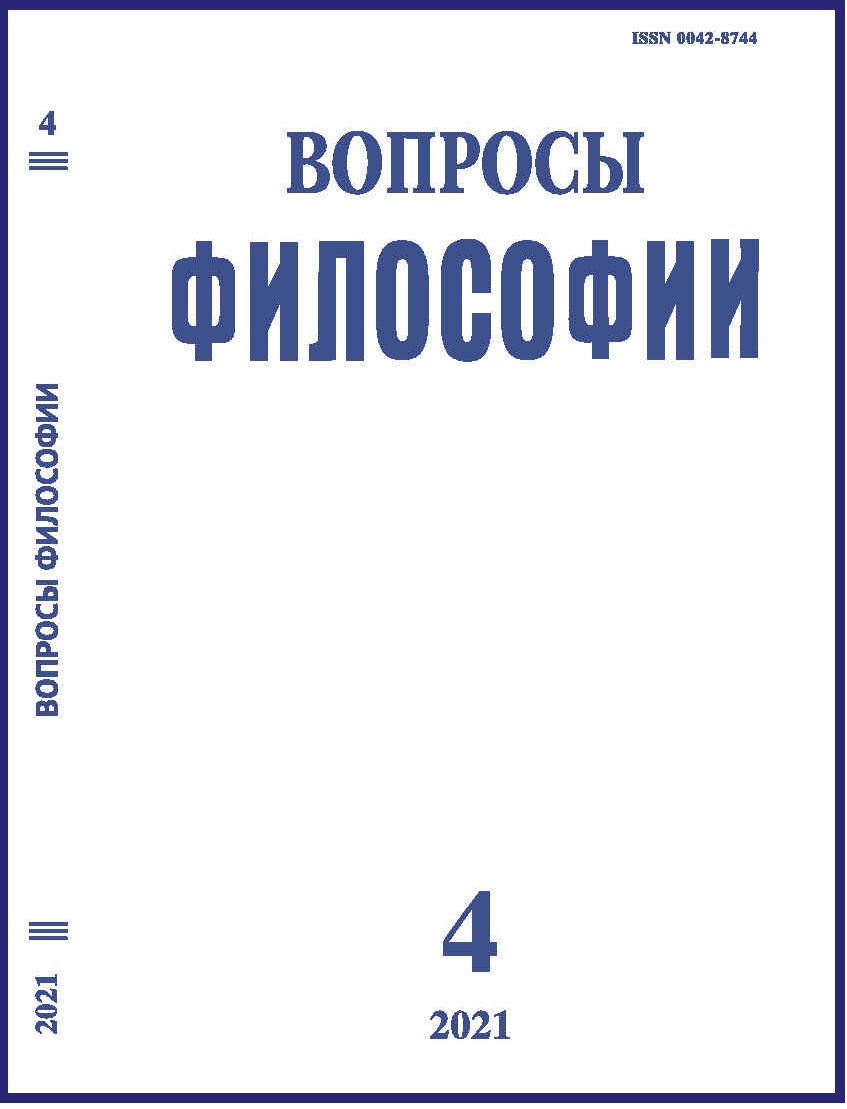Диалогизм как смыслоопределяющее начало в этике А. Швейцера
DOI:
https://doi.org/10.21146/10.21146/0042-8744-2021-4-203-207Ключевые слова:
диалог, этика, Альберт Швейцер, благоговение перед жизнью, Мартин Бубер, экзистенциальный смысл.Аннотация
В основе работы находится рассмотрение фактора диалогизма как смыслоопределяющего начала в этической и, более того, жизненной концепции А. Швейцера. Научная новизна работы заключается прежде всего в рассмотрении этического императива Швейцера как императива, имеющего основание в диалоге между двумя субъектами, одним из которых выступаю я сам, другим же может выступать целый мир во всем многообразии проявлений жизни. Отдельно рассматривается вопрос о поиске экзистенциального смысла в рамках идеи о диалогистичной нравственной парадигме всего человеческого существования.
Загрузки
Опубликован
2021-04-30
Выпуск
Раздел
Из редакционной почты
Как цитировать
[1]
2021. Диалогизм как смыслоопределяющее начало в этике А. Швейцера. Вопросы философии. 4 (Apr. 2021), 203–207. DOI:https://doi.org/10.21146/10.21146/0042-8744-2021-4-203-207.

